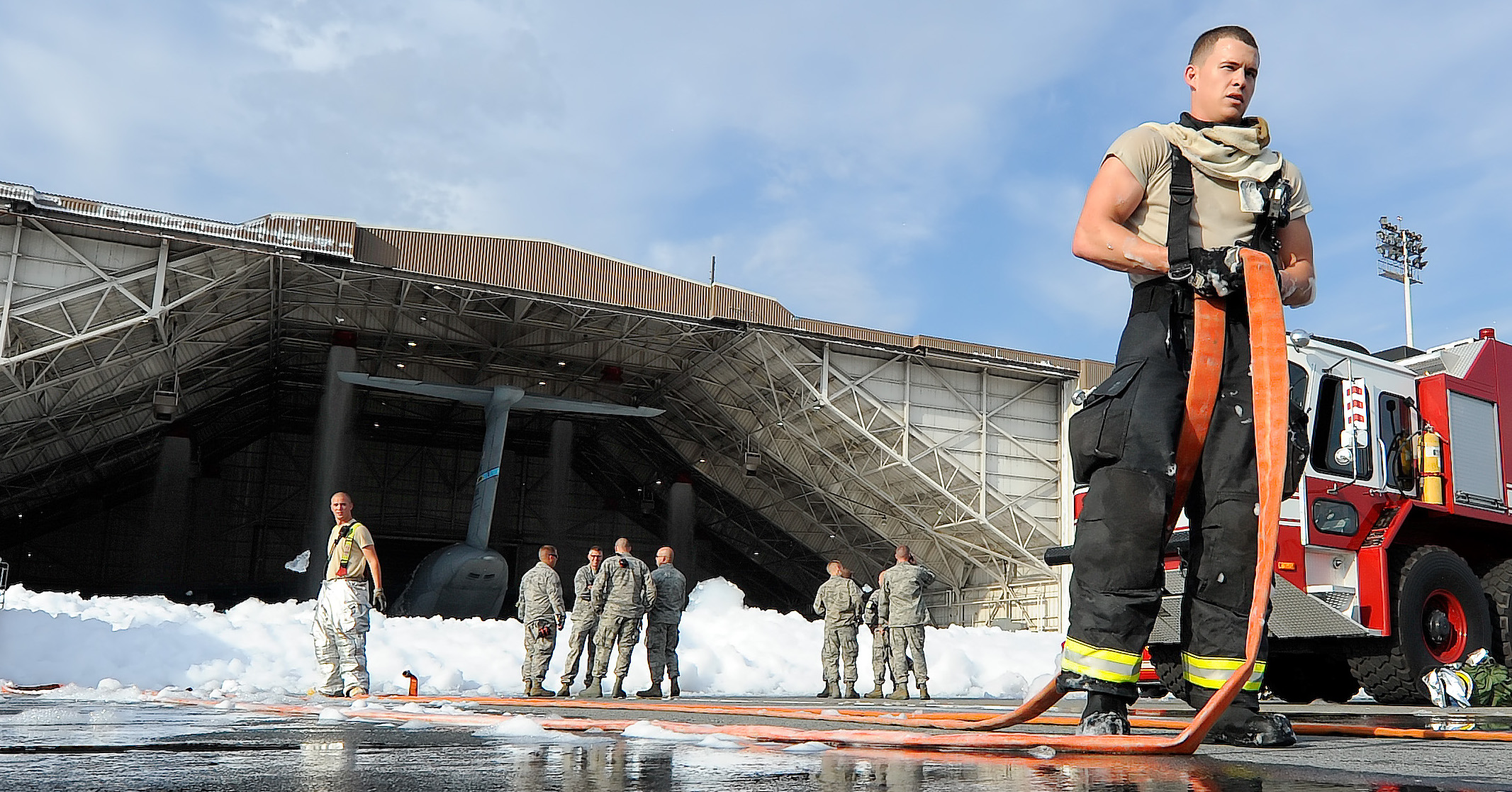WASHINGTON, D.C. — This morning, the U.S. Senate voted to approve the 2020 National Defense Authorization Act (NDAA), which includes several important provisions that begin to take action on the PFAS contamination crisis. The final NDAA includes important provisions to phase out the military’s use of firefighting foam containing PFAS chemicals, which has led to contamination of water supplies for millions of Americans. At the same time, key provisions were left out of the bill that would have required cleanup of PFAS-contaminated communities and industrial water pollution.
“Families across the country are suffering devastating health effects from exposures to PFAS chemicals. We applaud hard-fought provisions that begin to turn off the tap on the military’s use of these dangerous chemicals, but we are disappointed that Congress has missed this opportunity to require polluters to clean up their mess and stop pollution of our drinking water with PFAS,” said Safer Chemicals Healthy Families Director Liz Hitchcock. “House Majority Leader Hoyer has pledged to bring the bipartisan PFAS Action Act (H.R. 535) to the floor in January, and we look forward to working with House and Senate champions as we keep fighting for communities that are struggling right now.”
“We are glad to see Congress following the state of Washington’s lead and stepping up to stop the use of PFAS firefighting foam by the military, a major source of PFAS pollution in drinking water across the country,” said Laurie Valeriano, Executive Director of Toxic-Free Future. “We thank Representative Adam Smith for his leadership in making sure the military is on a timeline to end its use of PFAS firefighting foam. With PFAS-free foams in use all around the world now, there are no more excuses for the military or others to use it.”
States across the country are taking action to stop uses of these “forever chemicals” in products from firefighting foam to food packaging. They are also working hard to identify and clean up contamination. States will continue to act to protect their citizens and stop ongoing contamination.
“Now that Congress has set a deadline for the military to end its use of PFAS firefighting foams, states should also act to stop their use, which continues to contaminate communities across the country,” said Sarah Doll, National Director of Safer States. “In light of the provisions that were left out of the final bill, we also anticipate many states in 2020 will be looking to expand their authority to both regulate PFAS chemicals and make polluters pay for clean up.”
Key provisions in the final bill include:
ENDING USES OF PFAS
- Phase-out of military’s use of PFAS-based firefighting foam (AFFF) beginning in 2024
- Ban on military training exercises with PFAS-based AFFF and end to uncontrolled PFAS-based AFFF releases (with some exceptions)
- Greater information and guidance on destruction and disposal of PFAS-based AFFF foam
- Ban on PFAS chemicals in Meals Ready to Eat (MRE) food packaging
MONITORING AND CLEANUP PROVISIONS
- Addition of some PFAS chemicals to the Toxic Release Inventory to provide greater information to the public
- Requirement for Department of Defense to enter into cooperative agreements with communities for testing, monitoring, and clean-up of PFAS where DOD has contaminated the environment
- Addition of PFAS chemicals to US Geological Survey monitoring of surface and ground water, soils and wells
- Addition of PFAS chemicals to the Safe Drinking Water Act’s Unregulated Contaminant Monitoring Rule (UCMR5)
- Sharing of DOD monitoring data with municipalities
- Blood testing for military firefighters during annual physical exams to better determine and document their exposure to PFAS
- Department of Defense purchase of contaminated farmland and replacement water
- Allows use of Defense Environmental Restoration Program (DERP) funds to carry out environmental restoration in response to PFOA and PFOS pollution at National Guard facilities, and requires cleanup of “pollutants and contaminants” at federal facilities
###

